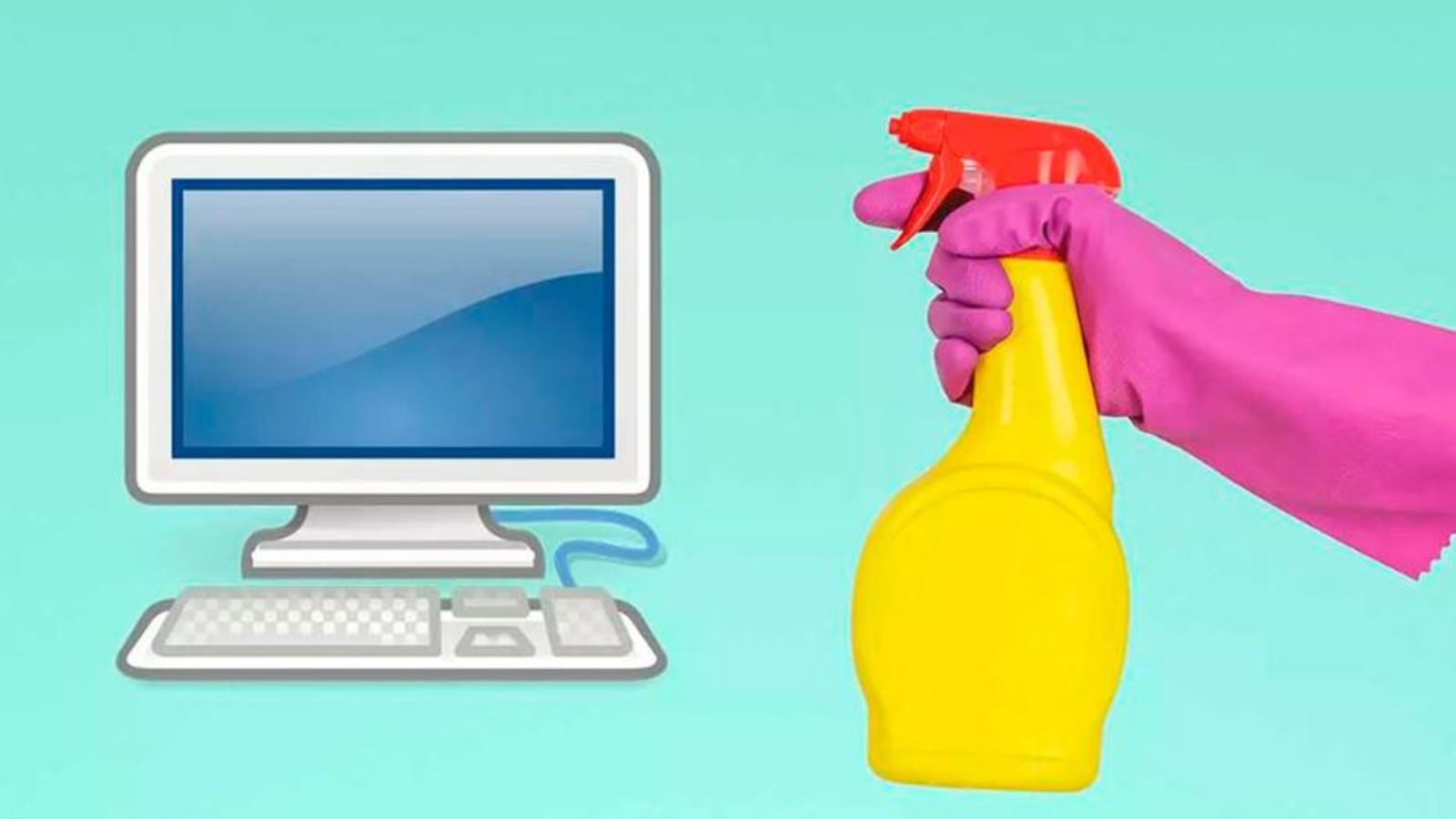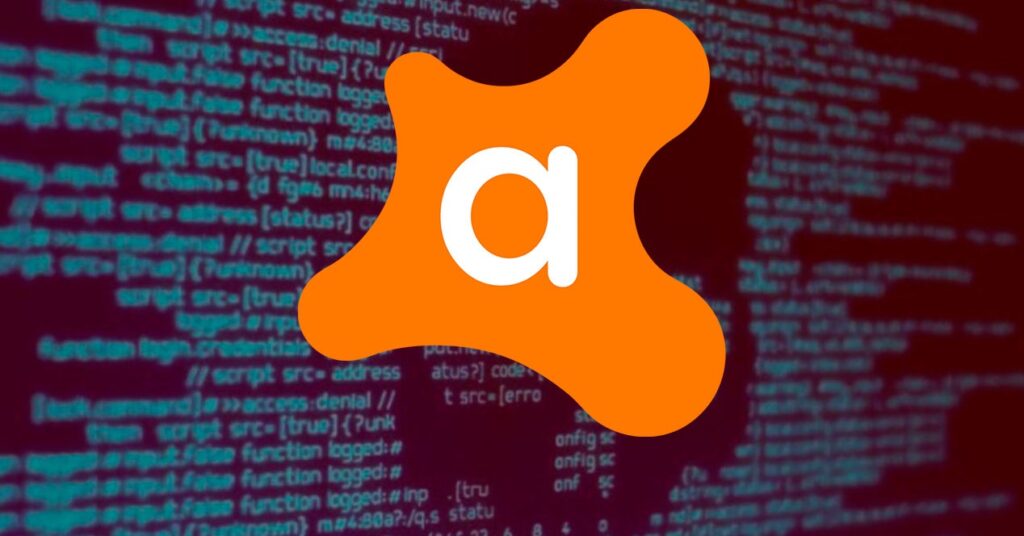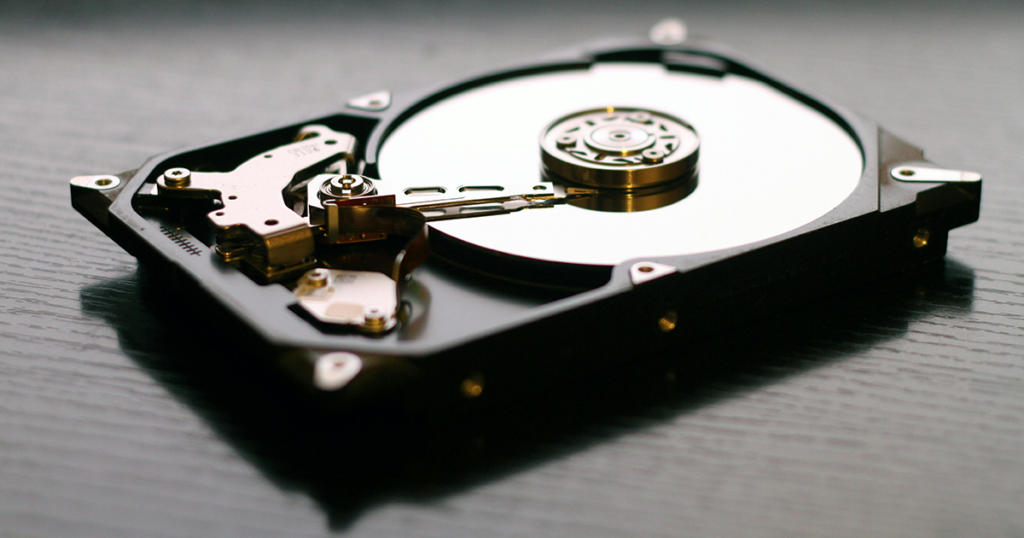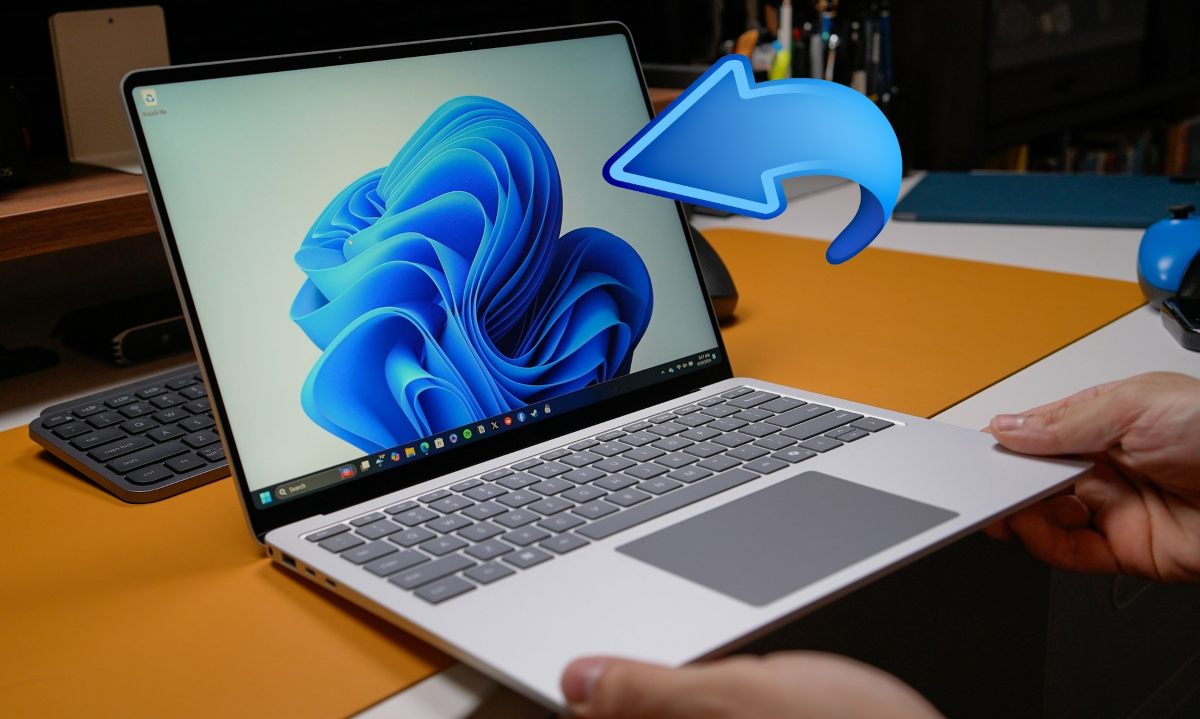- Windows 11 includes powerful native tools; complement it with a single reliable cleaner and, if needed, an advanced uninstaller.
- CrapFixer and BleachBit stand out as open source options for adjusting privacy, removing junk files, and optimizing at no cost.
- Before cleaning, create a system image and use Storage Sense; if drive C is at its limit, combine cleaning and moving files.

If you come from the era of Windows XP or Windows 7You probably remember having an arsenal of utilities to keep your PC running smoothly: antivirus software on one hand, cleaners on the other, defragmenters on hand… In the midst of the Windows 11 era, the story is different, but no less interesting. The system comes with its own tools that do a lot, although there is free and reliable software that can give you an extra boost when your computer is sluggish.
In this guide we gather the most useful free programs To clean, optimize, and customize Windows 11, along with paid alternatives and open-source options, security tips, native methods without installing anything, and advanced solutions for freeing up space on your C drive. We also answer the big question: What do you really need to have installed? on your PC to avoid complications? Let's get started with a guide on The best free programs to clean, optimize, and customize Windows 11.
What software do you really need in Windows 11?
For the average user, the base should be lightweight: with its own Windows Security (Defender), he Storage sensor And with the built-in uninstaller, you have the essentials to keep your system running smoothly. Add a only trusted cleaner For specific tasks, and an advanced uninstaller if you frequently switch applications, you'll be all set.
It's best to avoid installing multiple optimizers that do the same thing; duplicating functions creates conflicts and unnecessary loadIf you use an SSD, forget traditional defragmentation and opt for TRIM (Windows manages it automatically), and if you're looking for more speed, disable animations and transparenciesFor mechanical HDDs, it makes sense to defragment occasionally, but not every other day.
If you're used to packages like Advanced SystemCare or utilities like Smart Defrag, consider which parts they actually offer: on many systems, you'll need just the basics. Periodic cleaning, start-up check and complete removals. Less is more when it comes to maintenance.
CrapFixer: open source for taming Windows 11 (and also Windows 10)
Among the free alternatives, the following stand out: CrapFixerIt's an open-source utility available on GitHub that aims to refine Windows 11 through clear and reversible tweaks. It's lightweight, has a portable version, and allows analyze the system to suggest corrections without forcing you to install them automatically.
Their approach isn't so much about "sweeping files" as it is about disabling unnecessary telemetry, reducing system ads, adjusting privacy options, trimming AI-related elements you don't need, and decluttering sections like Microsoft Edge, gaming, and general settings. You decide whether to apply changes automatically or You're going with a scalpel ticking boxes as needed.
Key recommendation before touching anything: create a restoration point of the system. This way, if you're not happy with a setting, you can revert it in seconds. And common sense: messing with the Registry or loading sensitive areas haphazardly is never a good idea, whether with CrapFixer or any other tool.
Is it safe? Since it's open source, anyone can audit its code and verify that there are no tricks. The danger isn't the program itself, but a... reckless useTake it one step at a time and you'll know how to get the most out of it without any surprises.
The best free programs to clean and speed up Windows 11
CCleaner
Piriform's veteran remains one of the most popular. Its free edition covers the essentials: deletion of temporary files, caches, cookies and browsing history, as well as startup management and other utilities. It has faced controversy since 2017 due to privacy issues and aggressive advertising, but if you download it from its official website and activate only what you need, it remains... very practicalThe paid version adds features such as software updates, smart cleaning, and multi-device support.
BleachBit
Originally developed for Linux and with a portable version for Windows, it's a free alternative to CCleaner with a minimalist look and direct cleaningSimply select what you want to delete and that's it. It removes temporary files, cookies, and leftover data from dozens of applications (browsers, office suites, media players, etc.), uses very few resources, and doesn't try to sell you anything. Ideal if you're looking for something light and without frills.
Glary Utilities
A free "all-in-one" solution with an easy-to-understand dashboard and a good set of tools: disk cleaningStartup management, basic repair, duplicate finder, and more. It stands out for its speed in freeing up space and for offering a one-click maintenance mode, in addition to other options. somewhat more advanced If you want to be precise. It also allows Analyze the boot with BootTrace to detect bottlenecks.
Wise Disk Cleaner
Very simple and effective: it scans in seconds, tells you how much you can recover, and cleans with one click. It also allows scheduling. weekly or monthly tasksIt has a clear interface (light/dark mode) and supports multiple languages. If you don't want to complicate things, it's one of the best ways to keep your hard drive organized. trash kept at bay.
Bulk Crap Uninstaller (BCUninstaller)
If you frequently install and uninstall applications, this will be incredibly useful. This free uninstaller detects programs, batch deletes and erases traces that would remain if you used the standard uninstaller. Perfect for cleaning up residual files and those stubborn entries in the programs menu, without leaving hidden remains.
Razer Cortex: Game Booster
Designed for gamers, it closes unnecessary processes and services, frees up RAM, and can boost performance. FPS in a light way Optimizing the system during gaming sessions. It won't work miracles if your hardware isn't up to the task, but it helps squeeze out resources when your PC is struggling and you want everything to run smoothly. flow betterand it's advisable to review the power profiles that lower FPS by optimizing.
IObit Advanced SystemCare (Free)
Its free edition offers real-time monitoring and usage control. CPU, RAM and GPUBasic junk file cleanup and extra protection against spyware and suspicious sessions. The Pro version adds maintenance modules and more security, but even without paying, you can already cover the basics. the essential.
PC OneSafe PC Cleaner
A free tool that aims to maximize performance by eliminating broken shortcuts, program remnants, and leftover data. It allows you to manage the start to accelerate The basic version, and the paid version, adds duplicate removal and file recovery. A good option if you want a quick tune-up.
Other popular utilities (free and paid)

AVG TuneUp
Paid service, with a free trial. Includes scheduled maintenance and deep bloatware removal. automatic update of programs and registry cleaning. Polished interface and "forget about it and let it do the work" approach. If you don't mind paying, it's a convenient pack.
Avast Cleanup
No stable free version, but it does have a 30-day demo and recurring offers. Includes junk and cache cleaning, bloatware removal, and bug fixes. Register entries and defragmentation of mechanical hard drives. With automatic maintenance mode and software updates, it's powerful, although its price is what makes many people look for alternatives. free alternatives.
Norton Utilities Premium
Paid license for multiple Windows PCs. Designed for users who spend many hours in front of the computer: speeds up performance, fixes common errors, finds duplicates, and protects your system. privacy (Includes secure file deletion). It has a data recovery tool, useful if you accidentally delete something. accident.
Comodo System Cleaner
Free and backed by a security manufacturer. Includes registry cleaner, temporary file deletion, uninstaller and a boot manager, plus tools to reduce browsing traces. A classic if you want a focused approach comprehensive at no cost.
Ashampoo WinOptimizer
A comprehensive optimization suite with a paid version: it analyzes your system, frees up space, adjusts privacy settings, cleans the Registry, and provides detailed reports. It's easy to use and offers a "system scan"
trash"Practical when you're in a hurry. If you're looking for a nice and effective panel, it's a good investment."
Win Utilities
More than 20 tools to clean, repair, speed up, and protect your privacy. It has a mode of 1-click maintenance and task scheduling, as well as clearing sensitive browser history. It adds features without being overwhelming, with a gradual learning curve. very manageable.
iolo System Mechanic
A paid solution with different plans. It promises to improve internet latency, speed up processes, and add modules for defense and privacy in its Ultimate package. If you're looking for an "all-in-one" with support, here it is, all nicely packaged.
System Ninja
Free and in Spanish, specializing in removing temporary files, clearing cache, and detecting duplicate filesIt includes an area for managing programs that start with Windows and a system information panel. The PRO version adds extra features, but the core functionality remains the same. You're more than capable.
Restoro
Besides cleaning, it can replace corrupted Windows filesThis makes it interesting when the system is unstable. It has a free trial and several paid plans; if you have file corruption, it's a card to consider before... reinstallFor serious cases, consult how Repair Windows after a serious virus.
SlimCleaner (current status)
It had its moment, with a community of users who valued every component of the system, but today it is not distributed from its official website and has sometimes been categorized as PUP because of pressure to buy. It's not a current recommendation: it's better to opt for more advanced tools. transparent.
Cleaner One Pro (Microsoft Store)
Available in the Microsoft Store, it's designed for quickly cleaning temporary files. free up space in just a few steps. If you prefer to install from the Store for convenience and update control, it's an option that covers the basics without complications.
Before you touch anything: Backup and system image
The cleaners are powerful; if you overdo it, you could erase something you'll later regret. The wisest thing to do is create a system image on a disk with plenty of space and, in addition, a restore point. This way you avoid surprises and can revert to a previous state if you notice instability.
- Open control Panel and go into “System and security”.
- Access “Backup and Restore”.
- Click on “Create a system image” and choose an external hard drive or secondary with space.
- Confirm and wait for the “WindowsImageBackup” folder to be created. Save it. safe and sound.
Also back up your photos, videos, and important documents to the cloud or a separate drive. And before cleaning, carefully review the list of items to be deleted; if in doubt, it's best to keep them. temporarily exclude them.
Clean up without installing anything: what Windows already includes
Windows 11 includes several features to free up space and improve performance without third-party software. Start with the built-in uninstaller to remove programs you no longer use, and then continue with the Storage sensor.
To uninstall manually:
Start menu > Control Panel > Programs > Uninstall a programSort by date or size and remove what you don't need. Repeat until you only have what you actually use on a daily basis.
Clear your browser data regularly to save space and improve your privacy. In Google Chrome:
Three dots > Settings > Privacy and security > Clear browsing dataChoose a period and select cookies, cache and history if applicable.
For temporary system files: open Settings > System > StorageIn "This PC (C:)" go to "Temporary Files", select unnecessary files (download carefully) and clean them up. Activate the Storage sensor to automate the deletion of temporary files, emptying the trash, and managing them by time. It also considers change default download location to free up space in C:.
Unit C at the limit: strategies and tools to recover it

When the system drive runs out of space, it's advisable to combine cleaning temporary files with relocation of large files and a review of installed programs. In addition to the native functions, there are utilities that simplify this task and save time.
An "all-in-one" option is EaseUS All PCTrans (It has a free edition) with modules for system cleaning, searching for large files, and moving content between partitions. Its purpose is clear: to remove junk files from the system, browsers, and built-in apps, and detect large folders to delete them or move them to another drive with a couple of clicks.
The typical workflow would be: open the app, go to “System Cleanup,” tap “Scan,” review categories (temporary files, caches, app leftovers), and confirm. Then, under “Clean up large files,” locate the largest file and decide whether to remove it or keep it. transfers to another partition. It's more comprehensive than just using Disk Cleanup or Storage Sense because it centralizes decisions and guides you step by step.
Even so, don't forget the native alternatives: the classic Disk space cleanerStorage Sense itself and options like OneDrive to move what you don't need locally to the cloud. Combining these methods usually frees up several gigabytes without having to format.
Is it time to reformat? The final letter when nothing else works
If everything is still the same after cleaning, uninstalling, and moving files, you may need to reinstall. Make a full backup of your data (cloud or external drive), prepare the installation media, and perform a clean installation of Windows 11. It is the most effective way to recover performance when the system is overloaded or corrupt.
After reinstalling, if you notice persistent slowness, suspect the hardware: an SSD instead of an HDD, more RAM, or checking temperatures could make the difference. If the system is corrupted, see how to address the error. Inaccessible_Boot_Device.
After reinstalling, if you notice persistent slowness, suspect the hardware: an SSD instead of an HDD, more RAM, or checking temperatures could make all the difference. From then on, maintain a light cleansing routine and avoid accumulating utilities you're not going to use.
Frequently Asked Questions
Are PC cleaners safe?
Yes, as long as you get them from them. official sites And use its features wisely. Avoid downloads from dubious websites and don't delete anything you don't understand.
Do I absolutely need to install one?
It's not essential. Windows 11 offers native tools that cover everyday needs. A good cleaner only adds value when you're looking to save time or go deeper.
How often should I clean?
For a standard user, with a cleaning per month A startup check is sufficient. If you install and test apps frequently, increase the frequency.
You should be able to decide what to keep installed: a reliable antivirus (Windows' built-in one will do), a unique cleaner A lightweight, advanced uninstaller if you frequently change software, and, if you play games, a booster like Razer Cortex. Add to that the native Windows tools, and you have a system image Before making major changes, use open source options like BleachBit or CrapFixer when you want to go further without spending a penny.
Passionate about technology since he was little. I love being up to date in the sector and, above all, communicating it. That is why I have been dedicated to communication on technology and video game websites for many years. You can find me writing about Android, Windows, MacOS, iOS, Nintendo or any other related topic that comes to mind.
